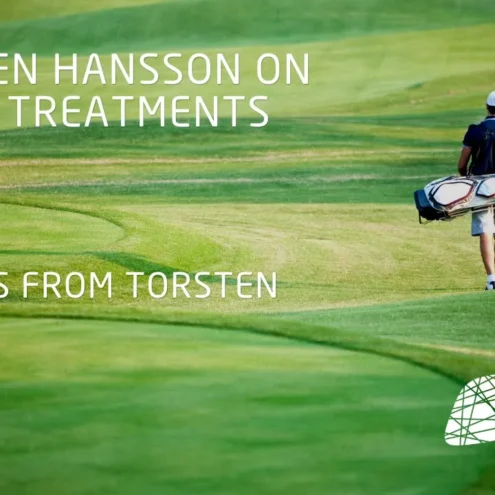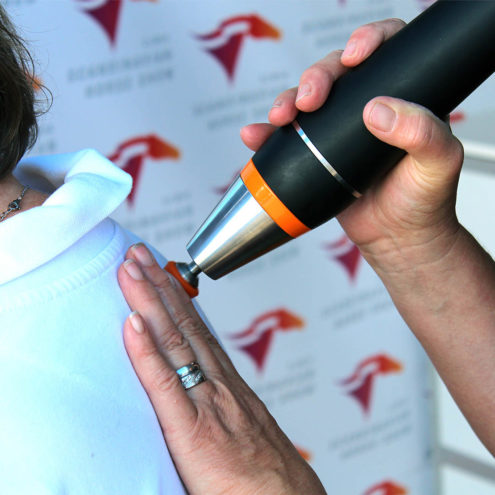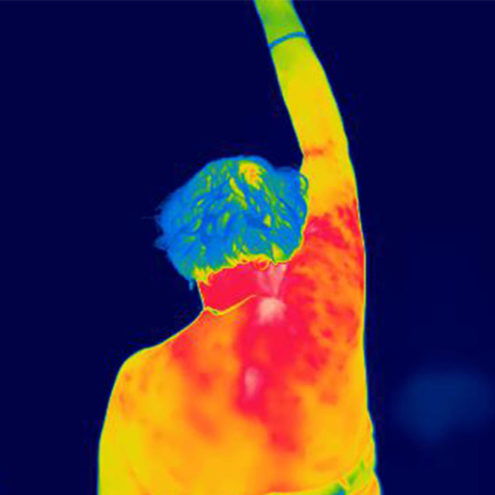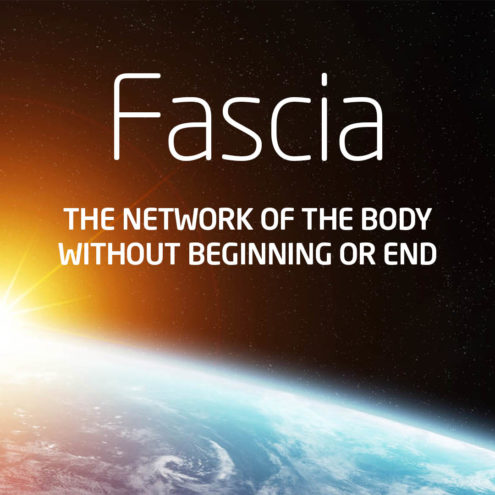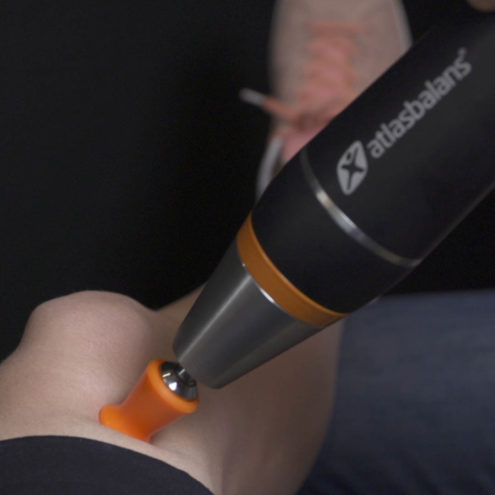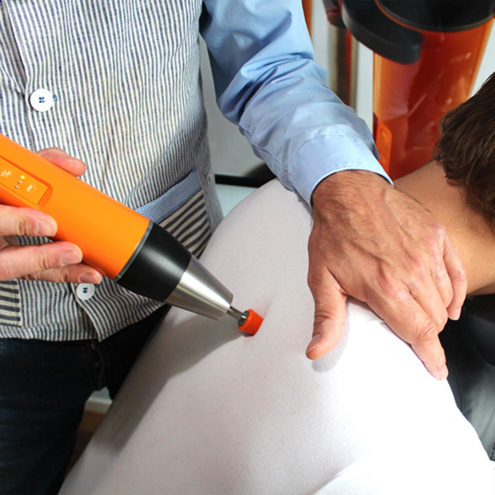Pain in the jaw

Jaw pain is common. Usually the problem is harmless and the pain goes away on its own, but sometimes you may need to do something about the pain. If you have jaw pain, it is usually in or just in front of your ear. It may be difficult to open your mouth and chew, and your jaw may make a clicking sound. Problems with the jaw can also cause headaches and stiffness in the neck. Normally, our jaw muscles should be relaxed and our upper and lower teeth should not be in contact with each other.
What is jaw pain a symptom of?
Jaw pain is often a symptom of a strained or inflamed jaw structure, but there are many possible causes. If you don’t know why your jaw hurts, it is important to seek help. Jaw pain is problematic as it often leads to headaches or tension headaches and can trigger migraine attacks for migraine sufferers.
Causes of jaw pain
There are several causes of jaw pain. Some of the most common are:
Stress. When we are stressed, we tend to clench our teeth, causing our chewing muscles to stiffen and our jaw to hurt.
Teeth grinding. Teeth grinding is a common behavior under stress, but many people also grind their teeth when they sleep.
Crooked and misaligned teeth and uneven bite. Misaligned and misplaced teeth can make your bite uneven and cause jaw pain.
Injuries can cause jaw aches and pains.
Over-mobility can cause the jaw to dislocate and cause pain.
Inflammation of the jaw joint, jaw muscles, teeth or gums can cause jaw pain.
Joint diseases such as osteoarthritis and rheumatoid arthritis can affect the jaw joint.
Fibromyalgia and muscular rheumatism.
Heart attack. Some people who have a heart attack do not experience chest pain that radiates into the left arm. Instead, they experience pain in the jaw, ear, teeth and throat. The pain is experienced as pressing and burning and is often triggered by physical exertion. The symptoms mostly affect women.
Pain in the side of the right jaw
There can be several reasons why you have pain in your right jaw. The symptoms are usually harmless and can go away on their own. If you experience a lot of pain in your right jaw and do not know the cause, it may be a good idea to seek medical attention to rule out a dangerous disease.
Jaw pain during pregnancy
Most women experience edema somewhere in their body during pregnancy. Most commonly, the feet, ankles and hands are affected, but for some, the face and neck can also be affected by edema. This can cause the pressure on the jaw to increase and result in aches and pains.
During pregnancy, the hormone relaxin is also released, which softens the fascia around the joints in preparation for childbirth. This makes the joints more unstable and the surrounding muscles have to work harder to stabilize. Relaxin will also soften the jaw joint. The chewing muscles will have to work harder to prevent the jaw from dislocating.
Nausea and repetitive vomiting can cause tense and sore jaws in pregnant women.
Pain in the jaw kidneys
Alport syndrome is a kidney disease that affects the production of collagen in the body. Cases of Alport syndrome causing aches, pains and swelling with degeneration of the jaw joint have been found.
What is jaw pain a symptom of?
Jaw pain is often a symptom of a strained or inflamed jaw structure, but there are many possible causes. If you don’t know why your jaw hurts, it is important to seek help.
Why does your jaw hurt?
Most often, pain is caused by tense and overworked jaw muscles, but wear and tear of the jaw joint is also a common cause. Joint and muscle diseases can also affect the jaw. Heart attacks can cause jaw pain.
When and where should I seek treatment for jaw pain?
If you experience sudden pain in your jaw and chest pain, you should seek immediate medical attention to rule out heart disease. If you have jaw pain without a serious cause, you can seek help from Fascia Clinics. The treatment removes tension, reducing or eliminating pain and aches in the jaw. Stiffness and swelling can be reduced and it becomes easier to move your jaw.
How is jaw pain treated?
The first step in treating jaw pain is to examine the body’s balance and posture. An imbalance can create uneven stresses in the body that can be transmitted to joints, muscles and tendons, causing them to become overstretched, far away from the primary problem.
The treatment of the jaw causes the fascia to relax and the flow to start. Aches and pains in the jaw disappear and structures around the jaw have improved gliding ability. Oxygen and nutrient supply to the cells improves. The body also becomes more balanced and receives more even loads.
Jaw pain – what can I do myself?
Try to avoid chewing on things that increase stress or make your jaw hurt. Try to reduce stress in your daily life and do relaxation exercises. Sometimes you may need to use a mouth guard if you clench and grind your teeth during the night. You can also massage your jaw muscles a little every day to reduce tension.
Exercises for jaw pain
Lie on your back and rest your legs on a stool, chair or similar with your hips and knees at 90 degrees. Stretch your arms out to the sides with your palms facing up. Lie still and breathe deeply through your nose for at least 10 minutes.
Stretch your jaw by gaping for about 6 seconds. You can also place a clenched fist under your chin to create a resistance when you yawn.
Move the lower jaw to the right or left. Choose one side at a time. Place one palm against your cheek to create a slight resistance when you move your jaw.
Push your lower jaw forward a few times as far as you can. Put a clenched fist against your chin to create a slight resistance as you push your lower jaw forward.



Jaw pain – frequently asked questions and answers
How does inflammation of the jaw feel
Inflammation of the jaw causes pain in the jaw area. The pain is constant and often worsens with movement of the lower jaw. It can also be perceived as ear pain. It may be difficult to open your mouth and it may hurt to touch your jaw.
Can stress cause jaw pain?
Stress is one of the most common causes of jaw pain. Under stress, people often clench and/or grind their teeth. This causes jaw muscles to become stiff and tense.
Why do I have pain under my jaw?
Jaw pain often occurs when the jaw muscles become tense and stiff. Problems with teeth and gums are also a common cause of jaw pain. If you do not know the cause of the pain, you should seek medical attention to rule out serious illness.
How does osteoarthritis of the jaw feel?
Osteoarthritis of the jaw causes pain in the jaw joint. You may find it difficult to open and close your mouth and chew. There is often a clicking or scraping sound when you move your jaw.
How to rest your jaw?
The easiest way to rest your jaw is to keep your upper and lower teeth separated and avoid chewing foods that put your jaw at risk of overexertion.
A mouthguard can be useful if you have difficulty keeping your teeth separated.
How can you tell if your jaw is dislocated?
If the jaw dislocates, it locks and you cannot bite down. Pain occurs on the side that is affected.
Who is affected by jaw disorders?
Anyone can suffer from jaw problems. Most often, stress is the cause and it usually goes away on its own.
 Search
Search





